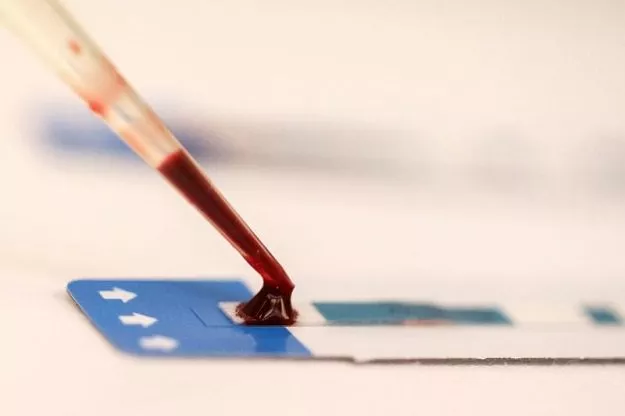Coronavirus scare looms over Karachi
Eight suspected cases of the virus reported in the city
KARACHI: As many as eight suspected cases of coronavirus have been reported by the Aga Khan University Hospital (AKUH) so far, according to a document released by the Health Department of Sindh on Tuesday. Of the eight suspected cases, three came from a cluster of 27 suspected cases that were reported on January 27. It has been reported that of one of these cases had no travel history to and from China during this year but he had travelled to China during June 2019. All suspected cases had flu-like symptoms and seven out of eight patients were employed at the Karachi Nuclear Plant (KANUPP).Among the patients suspected to have been attacked by the virus, one left against AKUH medical advice, while four were discharged, and another was kept under observation. The remaining two patients were defined as 'not a case' after observation, according to AKUH guidelines.
The health department document read, "Coordination was developed with the AKUH for timely sharing of data. A surveillance mechanism was established and sentinel sites were developed. Communication was also developed with health authorities and other stakeholders. Health Advisory has also communicated precautions and guidelines regarding coronavirus to every healthcare facility."
Sounding alarm bells
Meanwhile, University of Karachi's International Center for Chemical and Biological Sciences (ICCBS) Director Dr M Iqbal Choudhary expressed serious concern over potential spread of the virus in Pakistan.
Speaking at a meeting held at the National Institute of Virology (NIV), he said, "precaution is the only weapon against corona virus." Choudhary maintained that there is no pathological laboratory performing diagnostic tests for the confirmation of coronavirus cases in Pakistan.
Expressing concern, he pointed out that a recent cluster of pneumonia cases reported in 2019 in the Wuhan province of China was due to the "Novel Coronavirus." He recommended monitoring all immigrants and visitors upon arrival, as well livestock and goods at entry points, maintaining that passengers at all international airports should be scanned for their body temperature and suspected individuals should be examined in isolation.
Shedding light on the semantics of the virus, he stated that there are seven types of coronavirus known to infect humans. The most well-known examples of coronavirus ingecting humans are Severe Acute Respiratory Syndrome (SARS) and Middle East Respiratory Syndrome (MERS) having caused 774 and 858 deaths, respectively, he added. SARS predominantly broke out in Southern China in 2002-2003 and MERS was first identified in Saudi Arabia in 2012. The reported cause for outbreak in the Middle East has been attributed to the consumption of camel meat, meanwhile the causes for outbreak in China has been estimated to be transmission through contact with bats according to the World Health Organization (WHO).
Elaborating on this, Choudhary added that coronavirus are a group of viruses that have generally existed and maintained their life cycle in animals like camels, bats, cats and snakes.
The newly emerged virus named the Novel Coronavirus (2019-nCoV) is the third highly-virulent entry of the virus into humans, having caused more than 100 deaths with the toll rising every hour in China, Dr Iqbal Choudhary stated. Maintaining that the 2019-nCoV may cause mild to severe respiratory disease, initially clinically presented as fever, dry cough, myalgia (muscle pain), fatigue and gradually progressing to a more severe productive cough that produces phlegm, episodic headaches, hemoptysis (coughing up blood) and occasional diarrhoea.
He cautioned that in the event of suspected cases the patients should be kept in isolation and treated within confined premises as the virus is highly contagious and usually infects through the mouth and nose. Therefore, the use of surgical masks can minimise the risk of infection since there is no vaccine for the 2019-nCoV, nor any anti-viral drug found being effective enough to fight the infection.
Preventive measures
Meanwhile, microbiologists and healthcare experts have advised against unnecessary alarm around coronavirus, emphasising the importance of improved hygiene among people. They maintained that the requirement of preventative measures at every level stands important, however the claims being made about the associated mortality registered in China must be examined in light of the demographic and immune status.
"We must not panic but ensure that people susceptible to viral or bacterial infections including the elderly, children and those with compromised immunity are particularly protected," said Prof Shahana Urooj Kazmi. She added that ease of travelling has increased the risk of infection as Pakistan has recently seen cases of SARS. However, we must improve our management capacities with equal attention towards timely and efficient diagnosis, she added.
Meanwhile, screening of passengers from high-risk countries is being conducted at airports, with little realisation towards the fact that a person that has already been exposed to the virus takes at least 15 to 20 days to show symptoms.
Pakistan Medical Associate Secreatary (PMA) Dr Qaisar has stated that currently there no diagnostic kits specifically made for this virus as it is one of a kind and the country as a practice must have diagnostic labs in every city. "Shrinking distances and rapid changes in global climate demand that the National Institute of Health must have its satellites across the country," he said, adding that capacity building and training of lab personnel with due attention towards bio-safety standards cannot be ignored.
Experts have also outlined preventative measures for protection against the virus. These include asking patients to stay home for at least 24 hours or until symptoms disappear, avoiding close contact with people, especially those at high risk of severe infection, covering mouth and nose with tissues when sneezing or coughing, washing hands with soap and using alcohol-based disinfectants regularly and wiping down surfaces that are used frequently, such as doorknobs and remote controls.
WITH ADDITIONAL REPORTING FROM APP AND PPI
Published in The Express Tribune, January 29th, 2020.


COMMENTS
Comments are moderated and generally will be posted if they are on-topic and not abusive.
For more information, please see our Comments FAQ